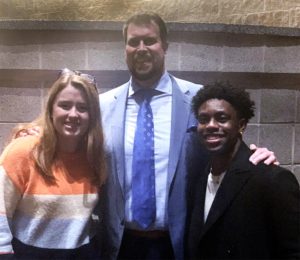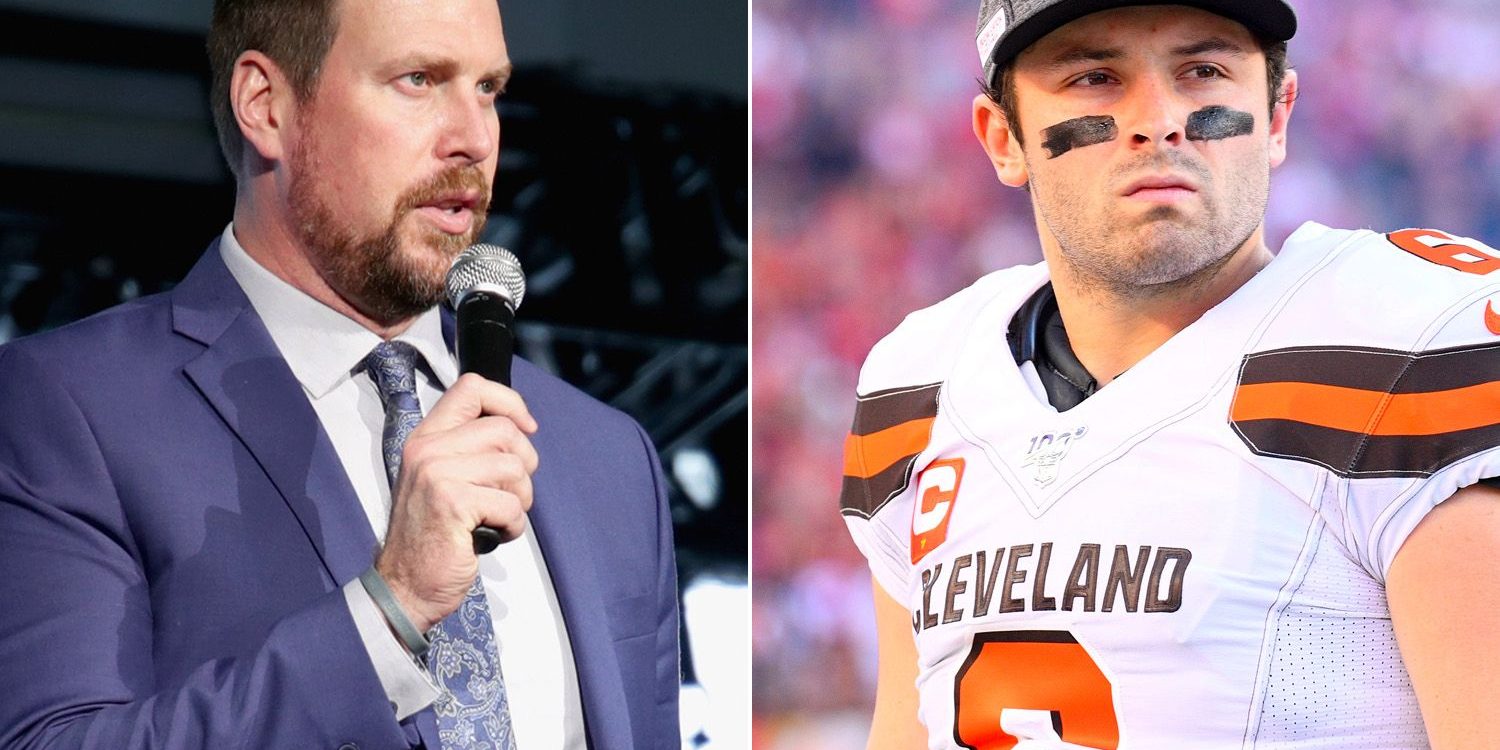By Tre Gabriel, Flawless Fellow and Abby Cooper, Flawless Intern
With the second overall pick in the 1998 NFL Draft, the San Diego Chargers drafted quarterback Ryan Leaf. He had been a stand-out athlete his whole life, leading Washington State University to their first Rose Bowl in almost 70 years. He was widely considered to be one of the best prospective professional football players, but his years playing professional football were marred by his public struggles with mental health challenges and substance use addiction. He quickly became one of the most infamous draft picks in the history of the NFL with his once-promising career ending with an opioid-related arrest that resulted in him serving time in prison. However, Ryan did not let that be the ending to his story. It took him hitting what he considered to be rock bottom while in a jail cell to motivate him to not only be someone for himself – but be someone for others. After finding sobriety, Ryan now uses his platform and his mistakes to encourage everyone to transform the way we think about mental health and addiction issues. We were fortunate enough to hear Ryan Leaf speak at an event in Philadelphia, where he reflected on his own experience.

“I was an addict well before I had ever taken a drug”
There are three things that Ryan wanted in life: money, power, and prestige. He is still considered to be one of the best high school athletes to come out of the state of Montana, and took that talent to Washington State and helped transform that football program into a winning culture – he had the prestige. That success led him to become a multi-millionaire at the age of 22 – he had the money. When you combine these two he becomes an influential person that you either looked up to or you feared – he had the power. And this is where his addiction began, not to any prescription drug but instead to the drug of self-esteem and conceit. During his time playing in college, his teammates often joked: “What’s the difference between God and Ryan Leaf? God doesn’t think he’s Ryan Leaf.” When he was playing, Ryan felt as if he was on top of the world. He had always been successful on the field – and this allowed his challenging behavior to be overlooked, go unchecked, and develop stronger. But the thing about professional sports is that everyone is talented. What many learn is that talent can get you in the door, but developing skills through hours of hard work and humble dedication is what keeps you there. This is a lesson that Ryan had never learned so when his performance declined he had trouble coping. No longer was he the larger than life “star football player” everyone adored. He now was considered to be the biggest bust in NFL history. He was now a “failed football player”…and according to the media, a “failed person” too.
“I felt like everybody was wrong,” Ryan said. “I felt like I was the victim. I felt like it was everybody else’s problem, not mine….You’re judgmental, you’re fearful, you’re angry, narcissistic, all of those things rolled into one.”
Ryan was selected number 2 overall in the NFL draft, so he is forever compared to the person who went number 1 overall and also played the same position as Ryan: Peyton Manning. After 4 unsuccessful seasons in the NFL, Ryan retired from professional football at the age of 26. Peyton Manning played 18 seasons in the NFL, won 2-Super Bowls and is undoubtedly a first-ballot Hall Of Famer. It is known that many athletes have a difficult time transitioning out of their sport but Ryan likely has had one of the hardest times. Not only is he considered to be one of the most disappointing players ever, but he is also forever linked to one of the greatest players ever, but he was also dealing with the loss of his identity, and he soon began to believe and internalize the personal criticism he heard in the media. Post-retirement, Ryan hoped to live a life away from public scrutiny, but one night he attended a fight in Las Vegas at the MGM Grand, and the event emcee was shouting out the names of all the celebrities in the audience. “Charles Barkley, Tiger Woods, Dr. Dre, and the MGM Grand just cheered and applauded. And the emcee announced my name, and the whole MGM Grand just booed and hissed. That had happened before, of course, just as an opposing quarterback. But you always have this armor on. The helmet, the shoulder pads. This, for whatever reason, was more about me as a person. It was just kind of sliced open and filleted for everybody to see. And that night would change my life forever because of what would happen next.”
At a post-fight party, Ryan was offered Vicodin by a friend. Familiar with the drug from his playing days, this was the first time Ryan took opioids not for the pain with his body but for the pain with his emotions. This is where Ryan lost himself. “He gave me two pills, and I mixed them with my alcohol that night, and it did its job. It was a pain killer. All the emotional pain that I was in disappeared. Every morning, I would wake up, and the first thing in my brain would be, ‘Do I have pills?’ And then once I took them, I didn’t feel anything. And I could just disappear and live in this foggy ether of nothingness.”
“Just because you’re a good football player doesn’t mean you’re a good person. The ego that goes with being an athlete in this country is huge. We play a game”
Soon, Ryan ended up in jail. He had been taking pills from friends, players he coached, even going to open houses just to steal pills from the bathrooms. He spent 32 months in prison, and he says for the first 26 months, nothing changed… until he met his new cellmate, a combat veteran who had driven drunk and killed someone in an accident. He helped Ryan realize his value: “Because Ryan, you’re going to get out at some point.” That’s when Ryan joined his cellmate in teaching other inmates to read in the prison library – the first time Ryan had helped anyone but himself. Seeing these men being vulnerable and asking for help at even 60 years old, he realized that he too could get help. It helped him to realize that it is okay to need help, to ask for help, to be helped. He didn’t have to be this “tough” guy all the time. This is where Ryan found himself again.
When he got out of prison, he had been sober for 32 months, but still needed to work on his habits. Treatment taught him patience and a new perspective. He found that service and volunteer work with those going through treatment helped him stay on track as well. He began as a driver for a recovery community, making 15 dollars an hour. Having made a 5 million dollar salary only a few years before, he was thrilled to do something where he was truly valued.
Ryan stuck with this job and continues to share his story with people around the country. “My three ideals now are accountability, community, and spirituality.” Ryan was once known for thinking he was a god, but through his journey has realized that he can only control so much. The struggle he endured has shown that obstacles will only make you stronger and that perfection is nearly impossible, but progress and perseverance can help you lead a meaningful life. Ryan has also found that he is more in control than he originally thought: “My best thinking in my lifetime took me to a prison cell”. In his ongoing journey of recovery, he still struggles with the behaviors of his past, but through his support system, he has found growth and peace. Ryan Leaf may not have gained notoriety in the way he expected, but his story of growth and recovery has inspired many.







